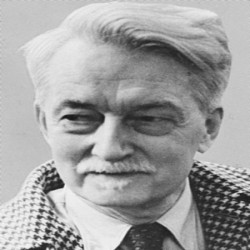
Jacques Maritain
| Date of Birth | : | 18 November, 1882 |
| Date of Death | : | 28 April, 1973 (Aged 90) |
| Place of Birth | : | Paris, France |
| Profession | : | French Philosopher |
| Nationality | : | French |
Jacques Maritain (জ্যাক ম্যারিটাইন) was a French Catholic philosopher. Raised as a Protestant, he was agnostic before converting to Catholicism in 1906. An author of more than 60 books, he helped to revive Thomas Aquinas for modern times, and was influential in the development and drafting of the Universal Declaration of Human Rights. Pope Paul VI presented his "Message to Men of Thought and of Science" at the close of Vatican II to Maritain, his long time friend and mentor. The same pope had seriously considered making him a lay cardinal, but Maritain rejected it. Maritain's interest and works spanned many aspects of philosophy, including aesthetics, political theory, philosophy of science, metaphysics, the nature of education, liturgy and ecclesiology.